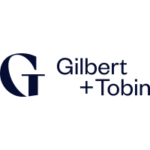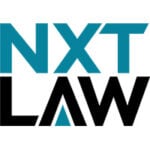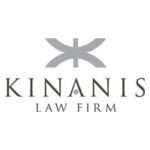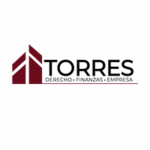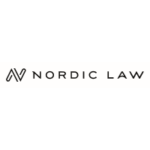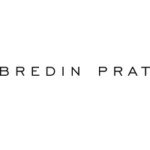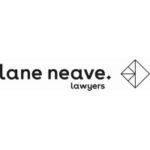-
Please provide a high-level overview of the blockchain market in your jurisdiction. In what business or public sectors are you seeing blockchain or other distributed ledger technologies being adopted?
The blockchain market in Ghana is thriving. The market’s biggest exposition is expressed in the growing use of cryptocurrency in Ghana. About 3 million Ghanaian adults are using cryptocurrency, making up 17% of the adult population. The period of July 2023 – June 2024 alone recorded US$3 billion in crypto transactions.
Beyond cryptocurrency, other applications of blockchain technology remain relatively novel and largely untapped in Ghana, although influential figures in Ghanaian society have recognised its potential to drive meaningful progress across various sectors.
The Government of Ghana has announced plans to introduce a blockchain-based gold tracking system to curb illegal gold exports which represents an annual $2 billion-dollar loss to Ghana’s economy. The Gold Board has asserted that a pilot project in selected mining communities in Ghana using the blockchain system has already begun and the results have been encouraging.
This progressive stance by the Government is consistent with earlier indications. At the 14th regional conference and annual general meeting of the heads of anti-corruption agencies in Commonwealth Africa, held in Accra from May 6 to May 11, 2023, then Vice President Mahamudu Bawumia announced that Ghana was set to become the first African country to adopt blockchain technology for government operations, as part of its broader Digitalisation Strategy.
In the private sector, blockchain applications are emerging primarily within the financial services industry. For instance, a local fintech company, Mazzuma, utilises blockchain technology to deliver digital payment services to the public.
In the real estate sector, start-ups like BitLand are leveraging blockchain technology to address long-standing issues related to land ownership and title registration. By using a decentralised ledger, BitLand aims to create secure, transparent, and tamper-proof land title records, reducing the risk of disputes and fraud. This approach has the potential to significantly enhance trust in property transactions and streamline land administration processes in Ghana and other emerging markets.
-
Please outline the principal legislation and the regulators most relevant to the use of blockchain technologies in your jurisdiction. In particular, is there any blockchain-specific legislation or are there any blockchain-specific regulatory frameworks in your jurisdiction, either now or envisaged in the short or mid-term?
Currently, there is no legislation in Ghana that expressly governs the use of blockchain technology. While the Payment Systems and Services Act, 2019 (Act 987) regulates payment systems and services, it does not specifically address blockchain-based solutions. Similarly, there is no dedicated regulatory framework in place for blockchain technology at this time.
However, this is expected to change in the near future. Ghana anticipates newlegislation and a comprehensive regulatory framework specifically tailored to the use of blockchain technology in the coming months.
The Bank of Ghana (BoG) has completed the draft Virtual Assets Service Providers (VASP) Bill, 2025 in collaboration with the Securities and Exchange Commission (SEC) and the Financial Intelligence Centre (FIC). The Bill is currently going through the relevant procedure to be laid before Parliament.
-
What is the current attitude of the government and of regulators to the use of blockchain technology in your jurisdiction?
The attitudes of the Government and regulators have shifted from consumer protection-inspired paranoia to active engagement and preparedness towards formal regulation. In July 2025, the Governor of the BoG engaged the Chamber of Digital Assets and Blockchain Innovations (CDABI), a blockchain and digital assets advocacy group in Ghana, on virtual asset regulation as part of efforts to develop a regulatory framework for virtual assets in Ghana. The engagement seeks to explore opportunities for collaboration and stakeholder engagement in the rapidly evolving virtual asset ecosystem.
The BoG outlined its regulatory roadmap and announced that upcoming initiatives include the VASP registration exercise, the launch of a limited regulatory sandbox, and stakeholder consultations on the draft VASP Bill and related regulations.
-
Is there a central bank digital currency (‘CBDC’) project in your jurisdiction? If so, what is the status of the project?
In a November 25, 2019 Press Release, the BoG announced its discussions with key stakeholders to explore a pilot project in a sandbox environment on a central bank digital currency with the possibility of issuing the e-cedi (CBDC) in the near future.
There exists a CBDC project in Ghana. In March 2022, BoG presented a design paper on the CBDC outlining the motivations for issuing the CBDC, the potential benefits for stakeholders, and the design principles of the CBDC.
In 2023, the Government launched the e-cedi hackathon to build partnerships and encourage innovation around the CDBC. The hackathon focused on key areas such as agriculture, government payments, business transactions, and taxation. It marked a significant milestone in Ghana’s ongoing efforts to explore and develop a digital currency ecosystem. The winners of the hackathon were announced in December 2023.
In May 2024 the Bank of Ghana announced the successful execution of a cross-border transaction payment using the CBDC and an approved stablecoin from Singapore, demonstrating the completion of the first proof of concept as part of Project DESFT (Digital Economy Semi-Fungible Token).
Last year the Governor of the BoG assured the public that the CBDC would be launched before the end of 2026.
-
What is the current approach in your jurisdiction to the treatment of cryptoassets and decentralised finance (‘DeFi’) for the purposes of financial regulation?
The cyptoassets DeFi landscape in Ghana remain unregulated, despite the current transition from a sceptical approach by Government and regulators to that of engagement and preparedness to introduce legislation and a comprehensive regulatory and legal framework. Nevertheless, the BoG’s posture of prohibiting its regulated entities from facilitating cryptoasset transactions remain in force.
The completed draft VASP Bill, 2025 when passed into law shall be the primary financial regulation law on the treatment of cryptoassets and DeFi.
While Ghana awaits the passage of relevant legislation, the proactive engagement by the Bank of Ghana (BoG) with the Collaborative Dialogue on Advancing Blockchain Innovation (CDABI) reflects the country’s open and constructive stance toward the regulation of cryptoassets and decentralised finance (DeFi).
-
What is the current approach in your jurisdiction to the treatment of cryptoassets and DeFi for the purposes of anti-money laundering and sanctions?
Ghana’s Anti-Money Laundering Act, 2020 (Act 1044) expressly regulates the treatment of cryptoassets. By corollary, the FIC’s regulatory ambit extends to cryptoassets. The First Schedule to Act 1044 expressly identifies a VASP as an accountable institution. Therefore, the law requires VASPS to implement customer due diligence measures, maintain records, report suspicious transactions, submit cash transaction reports, submit electronic transfer reports, among others.
Act 1044 defines a VASP as any natural or legal person who is not covered elsewhere under the Financial Action Task Force (FATF) Recommendations, and as a business conducts one or more of the following activities or operations for or on behalf of another natural or legal person:
- Exchange between virtual assets and fiat currencies;
- Exchange between virtual assets one or more forms of virtual assets;
- Transfer of virtual assets;
- Safekeeping and administration of virtual assets or instruments enabling control over virtual asses; and
- Participation in and provision of financial services related to an issuer’s offer or sale of a virtual asset.
Although the Travel Rule (FATF Recommendation) is not legally binding through the provision of existing domestic law, it is suggested that existing VASPs comply with the Travel Rule to demonstrate Ghana’s commitment to the global efforts towards Anti-Money Laundering (AML), Combatting Financial Terrorism (CFT) and combatting the proliferation of weapons of mass destruction (P).
-
What is the current approach in your jurisdiction to the treatment of cryptoassets and DeFi for the purposes of taxation?
Existing tax legislation such as the Income Tax Act, 2015 (Act 896) as amended and Value Added Tax (VAT) Act, 2013 (Act 870) as amended, applies to tax on earnings on the trade of cryptoassets as an income generating activity in Ghana. However, the novel and peculiar nature of cryptoassets and DeFi imply full taxation may not be realised.
In the light of the above, the Ghana Revenue Authority (GRA) has announced its intention to deploy a platform to allow the Authority to identify cryptocurrency accounts and trace transactions, effectively bringing cryptoassets and DeFi into the tax net.
In collaboration with the BoG and SEC, the GRA is setting up systems to regulate and tax gains from cryptoassets.
-
Are there any prohibitions on the use or trading of cryptoassets in your jurisdiction? If permitted, is cryptoasset trading common?
As of the time of writing, cryptoassets remain unregulated in Ghana, as there are no express provisions in existing legislation that prohibit their use or trading.
Despite the absence of a formal regulatory framework, trading in cryptoassets is widespread across the country. Common use cases include:
- Saving in cryptoassets as a hedge against the instability of the domestic currency;
- Facilitating fast and efficient cross-border transfers through stablecoins;
- Reducing the cost of international remittances and payments.
As noted earlier, reliable data indicates that between 2023 and 2024, cryptoasset trading activity in Ghana amounted to approximately US$3 billion, involving around 3 million adult Ghanaians, representing roughly 17% of the adult population.
-
To what extent have initial coin offerings (‘ICOs’) taken place in your jurisdiction and what has been the attitude of relevant authorities to ICOs? If permissible, what are the key requirements that an entity would need to comply with when launching an ICO?
An initial coin offering (‘ICO’) is a process in which companies, entrepreneurs, developers, or other promoters raise capital for their projects and the services they propose to offer, in exchange for digital tokens that may represent payment for a good or service, or a security, a commodity or derivative thereof, depending on the ICO’s structure and the participant’s activities. However, earlier ICOs were typically used to launch new cryptocurrencies.
To launch an ICO, the project team publishes a white paper describing the project in detail, the distributed ledger technology (DLT) underlying the system, protocols, and rules in general. The project team then proceeds to create tokens on a blockchain platform e.g. ERC token on Ethereum. After token creation the team launches a public sale through social media, ICO aggregator websites, and the project website itself, where investors send cryptocurrency to the project’s wallet in exchange for tokens. Finally, tokens are distributed to investor’s crypto wallets and may be later listed on crypto exchanges. Issued tokens can be traded on particular exchange platforms. Transactions in the tokens can be connected to websites including Kraken, Poloniex, or Livecoin.
Under the Ghanaian cryptocurrency scene, ICO is classified as an activity by the issuers of virtual assets and therefore by a Virtual Asset Service Provider (“VASP”). Ghana classifies VASPs as entities undertaking services that encompass brokerage, custodian and transfer services. At the time of writing, Ghana has no VASP legislation in force. By corollary, the issuance of ICOs is not regulated. The farthest the BOG has gone to touch on ICO is the completion of the VASP Bill as at October 1, 2025 in collaboration with the Financial Intelligence Centre (FIC) and the Securities and Exchange Commission (SEC). This comes after mandatory registration of VASPs as directed by the Bank of Ghana in July 2025 and the release of the August 2024 Draft Digital Asset Guidelines which were released with the goal to invite recommendations from stakeholders towards establishing a robust regulatory framework to govern the cryptocurrency scene in Ghana.
-
Are there any legal or regulatory issues concerning the transfer of title to or the granting of security over cryptoassets?
Ghana’s state of play on cryptocurrency does not provide a comprehensive legal framework for the transfer of title in cryptoassets as well the grant of security in them. The BOG has stated that cryptocurrencies are not recognised as legal tender in Ghana and as such cryptoassets cannot be accepted as “monetary payment” for debts owed or services provided. Furthermore, there is no express recognition of cryptocurrency as property under Ghanaian law.
Despite this position by the BOG, it is yet to release a robust framework on the management and use of cryptoassets in Ghana. The current legal framework covering the transfer of title and security covers goods, services, intellectual property, and shares.
While the argument may be advanced that laws on the transfer of title and security such as the Sale of Goods Act, 1962 (Act 137), Borrowers and Lenders Act, 2020 (Act 1052) and Stamp Duty Act, 2005 (Act 789) can apply to cryptoassets thus making the security in cryptoassets registerable under the Collateral Registry, a more acceptable view concludes that the lack of a comprehensive legal and regulatory framework for VASPs in Ghana present considerable issues surrounding the transfer of title and security in cryptoassets.
-
How are smart contracts characterised within your legal framework? Are there any enforceability issues specific to the operation of smart contracts which do not arise in the case of traditional legal contracts?
Smart Contracts, usually stored on blockchains, are self-executing agreements with their terms written into code such that all parties are sure of the outcome. Smart contracts are arranged in such a manner that the execution is automated for all parts of the contract to be performed in a synchronised manner to an output already agreed on. The concept’s inventor, Nick Szabo defines it as a computerised transaction protocol that executes the terms of a contract.
At first glance, it may appear that under Ghanaian existing contract laws, mainly comprising case law and the Contracts Act, 1960 (Act 25), smart contracts virtual/digital assets are not expressly covered although largely laws regarding enforcement of contracts may apply. Upon a deeper perusal however, it is noted that other existing legislation can apply to smart contracts. The Electronic Transactions Act, 2008 (Act 772) [‘the ETA’] regulates electronic communications and related transactions. It is expressly stated to apply to electronic transactions and electronic records of every type. This provides some welcome clarity for the likely legal status of smart contracts under Ghanaian law. For example, section 23 of the ETA provides that an agreement is valid even if concluded partly or in whole through an electronic medium. The ETA also validates automated transactions whether or not it involves an electronic agent. Therefore, this would mean that such agreements through smart contracts will not be unenforceable on the ground that no natural person was involved.
Under Ghanaian law, the formation of a valid contract requires the presence of the following essential elements: offer and acceptance, consideration, intention to create legal relations, and capacity to contract.
Offer and Acceptance.
There appears to be no binding Ghanaian legal authority on the existence of a valid offer and acceptance in smart contracts. However, although a smart contract involves a computer code, the contract itself is a standard one which raises no new issues of enforceability. If a smart contract comprises only code with no natural language element, that is compelling evidence of an example of a contract with a clear language. Under Ghanaian law, an offer is an indication by words or by conduct by an offeror that he or she is prepared to be bound by a contract in the terms expressed in the offer, if the offeree communicates to the offeror his or her acceptance of these terms. Therefore, smart contract code used on a distributed ledger is likely to constitute an offer if other participants on the ledger were entitled to interact with, and execute, the code. Acceptance means that the counterparty must agree to the substantive terms of the contract and act accordingly to accept these terms in a manner that is plain, unequivocal, unconditional, and without variance of any sort between it and the proposal, and it must be communicated to the other party, and that without unreasonable delay. In the case of smart contracts, the offeree may indicate acceptance through signing the transaction with a private key. It is suggested that signing the smart contract with a private key should constitute a valid offer and acceptance under Ghanaian law.
Consideration.
In determining whether a smart contract is supported by consideration, a Ghanaian court is likely to consider whether there has been an exchange of value in the form of acts, forbearance, or promises. The Ghanaian Court will not question whether adequate value has been given.
Intention to create legal relations.
Under Ghanaian law, the Court assesses the parties’ intentions based on objective criteria comprising the nature of the agreement, the surrounding circumstances and an objective interpretation of what the parties reduced into writing, stated, indicated through conduct. The guiding principle of the Courts has established that in the case of social, family, and domestic agreements there is strong presumption that the parties did not intend to create legally binding obligations unless the presumption is rebutted by contrary evidence. However, in commercial and business agreements, there is a strong presumption of an intention to create legally binding obligations subject to contrary evidence led in rebuttal. Therefore, if the other requirements for a legally binding contract are satisfied in the case of a smart contract, the Court will not approve of a party’s argument as against the other party who acted in reliance of a smart contract, that there was no intention to create legal relations with respect to a smart contract.
Capacity to contract.
In contracting with a company, the counterparty will likely seek to determine whether the party signing on behalf of the company has the authority to enter into such a contract. While this is not unique to smart contracts, in the context of smart contracts parties may want to verify such authority in an electronic or automatic manner. Such verification can only be done if the relevant data sources (e.g. Office of the Registrar of Companies detailing the information on the company and its authorised signatories, and signature authorisation documents of the company) can be obtained using the software, and if the software is well-equipped to parse the data contained in such documents to determine whether a person is authorised to enter into a specific type of transaction on behalf of the company. Depending on the software’s level of intelligence, it may also access and parse a board resolution or the list of directors. Alternatively, it may require an input to satisfy itself that the person signing the smart contract and claiming to have the authority to do so does in fact have such authority.
In the circumstances it is valid to opine that the general rules on contract formation apply to determine the legal status of a smart contract, provided that the type of smart contract and the factual issues at play lend legitimacy to such a conclusion.
-
How are Decentralised Autonomous Organisations (‘DAOs’) treated in your jurisdiction?
A DAO has been defined as a form of entity that relies on blockchain technology and smart contracts as its primary source of governance. It is a blockchain-based organisation operating without a central authority. A DAO runs according to rules encoded in smart contracts. DAOs are made up of blockchain enthusiasts who have come together to act in the best interest of the industry. Like the decentralised nature of virtual/digital assets, DAOs are also not centralised, and are not formally regulated under Ghanaian law.
In Ghana’s evolving blockchain and cryptocurrency landscape, Decentralized Autonomous Organizations (DAOs) are increasingly gaining interest and acceptance, although they currently remain unregulated by any central authority, such as the Bank of Ghana (BoG) or the Securities and Exchange Commission (SEC). Formal recognition and regulation of DAOs are, however, expected in the near future. Ghana already hosts an active DAO community. Notably, in 2022, a workshop for DAO enthusiasts was held in Accra, under the banner of the Ghana Unity DAO. The well-attended event provided a platform to explore, analyse, and highlight the potential of blockchain technology in Africa, particularly its impact on markets and populations across the continent.
In another development, the Ghana Communication Technology University (GCTU) hosted a blockchain workshop in collaboration with Celo DAO in May 2025.
-
Have there been any governmental or regulatory enforcement actions concerning blockchain in your jurisdiction?
The country’s regulatory framework is currently in a transitional phase, moving from an unregulated environment to a comprehensive regulatory structure expected to be implemented by September 2025.
As of 2025 and at the time of writing this article, Ghana has not enacted specific legislation governing blockchain technology. However, there have been several regulatory statements, enforcement actions, and policy initiatives that indirectly impact blockchain-based activities, particularly in the realm of crypto assets.
Bank of Ghana’s Regulatory Stance
The Bank of Ghana (BoG), the primary financial regulator, has issued multiple public notices regarding cryptocurrencies. In a notice issued in January 2018, the BoG cautioned the public against dealing in cryptocurrencies such as Bitcoin, Ethereum, and others, asserting that they are not legal tender in Ghana. In another notice issued on 9 March 2022, the central bank clarified that it had not licensed any entities to engage in cryptocurrency activities, and therefore individuals or firms dealing with them did so at their own risk.
More recently, the BoG has taken steps toward understanding and potentially regulating digital assets. Through the Financial Industry Regulatory Sandbox launched in 2022, the BoG invited innovations in blockchain-based products, including digital tokens and payment systems, suggesting an evolving approach to regulation that balances innovation and consumer protection.
The BoG also released exposure draft guidelines on digital assets on August 16, 2024 as noted above, marking a significant step toward formal regulation. These guidelines aim to regulate virtual asset service providers (VASPs) such as cryptocurrency exchanges, by requiring registration with either the BoG or the Securities and Exchange Commission (SEC). VASPs must comply with anti-money laundering (AML) and counter-terrorism financing (CFT) measures, conduct customer due diligence, and report suspicious transactions to the Financial Intelligence Centre (FIC). The Guidelines also prohibit commercial banks from directly engaging with virtual asset businesses, limiting their role to providing banking, payment, and settlement services to registered VASPs. The BoG invited public feedback on these Guidelines by August 31, 2024, and plans to conduct sandbox testing to refine the rules before finalisation in September 2025.
The VASP Bill is to be passed into law in Ghana in the coming months according to the regulatory roadmap issued by the BoG. In the meantime, the BOG has completed its mandatory registration of VASPs.
Securities and Exchange Commission (SEC)
The Securities and Exchange Commission (SEC) of Ghana has also issued cautionary advice. In March 2019, the SEC published a guidance note warning the public against investing in unlicensed crypto asset trading platforms. The SEC declared that all crypto asset businesses seeking to operate in Ghana must first register and obtain approval, even though there is no specific framework for such licensing yet.
The SEC has not yet published a licensing regime specific to digital asset offerings such as Initial Coin Offerings (ICOs), Security Token Offerings (STOs), or other DeFi-related fundraising activities. However, in practice, it considers crypto assets as potential securities and has expressed an intention to regulate them under existing securities laws.
It is expected that the BoG will work with the SEC to finalise VASP regulation in Ghana.
Enforcement Actions
Although there is limited public information on specific enforcement actions targeting blockchain-based activities, regulatory clampdowns have occurred on Ponzi schemes and illegal investment platforms masquerading as crypto ventures. The Economic and Organised Crime Office (EOCO), the SEC and BoG have coordinated efforts in cracking down on such schemes, most notably the Global Coin Community Help (GCCH) saga in 2018, which was found to be defrauding Ghanaians under the pretext of blockchain investment.
On the back of the alleged fraud by GCCH, the BoG issued a Notice warning that six entities including GCCH had not licensed to carry out deposit taking activities in Ghana, and that anyone doing business with them does so at their own risk without any liability for refund from the BoG.
The shift from prohibition to regulation reflects Ghana’s recognition of the decentralised and borderless nature of cryptocurrencies. The BoG’s draft guidelines, compulsory registration of VASPs, the BoG Market Update on Virtual Assets Regulatory Developments, the newly established Virtual Assets Regulatory Office (VARO) within the BoG, the completion of the draft Virtual Asset Providers Bill 2025 for presentation to Parliament, and the BoG’s engagement of virtual asset advocacy groups such as the Chamber of Digital Assets demonstrate proactive enforcement efforts to address financial crimes while fostering innovation. However, the regulatory framework is still in development, and enforcement actions are primarily focused on establishing compliance requirements rather than widespread punitive measures. The lack of finalised regulations creates uncertainty for VASPs, but the sandbox approach and public consultation suggest a collaborative intent to balance innovation with oversight and consumer protection.
-
Are there any other generally-applicable laws, case law or regulations that may present issues for the use of blockchain technology (such as privacy and data protection law or insolvency law)?
Even in the absence of blockchain and crypto-specific laws, several generally applicable laws may present regulatory issues for the use of blockchain technology in Ghana.
Data Protection and Privacy Laws
Data Protection Act, 2012 (Act 843): This act governs the collection, processing, and storage of personal data in Ghana, administered by the Data Protection Commission (DPC). Blockchain’s immutable ledger, especially in permission-less systems, raises challenges in complying with data subject rights, such as the right to rectification or erasure (the “right to be forgotten”). For instance, personal data recorded on a public blockchain cannot be easily modified or deleted, conflicting with Act 843’s requirements.
Application to Blockchain: In open-access blockchains, identifying a data controller is difficult due to the lack of centralised governance. The European Data Protection Board (EDPB) suggests that entities like crypto asset wallet providers or smart contract developers could be considered data controllers or processors, depending on their role in data processing. In Ghana, VASPs may need to implement technical solutions, to obscure sensitive data while maintaining ledger integrity. The BoG’s draft guidelines emphasise that VASPs must have robust data privacy policies aligned with existing regulations, indicating that compliance with Act 843 will be a prerequisite for authorisation.
Challenges: The decentralised nature of blockchain complicates compliance with data protection laws, as there is no single entity responsible for data management. A widely accepted framework involves designing blockchain architectures that balance transparency with privacy, potentially through private or consortium blockchains with controlled access.
While Act 843 provides a foundation for digital commerce, it appears not to have been designed with blockchain’s decentralised, cryptographic, and autonomous nature in mind. As a result, Ghana needs either amendments to Act 843 or a new legal framework to accommodate and regulate blockchain technology effectively—particularly in the areas of smart contracts, digital asset classification, data sovereignty, and consumer protection.
Anti-Money Laundering (AML) and Counter-Terrorist Financing (CTF) – Anti-Money Laundering Act, 2020 (Act 1044)
This Act came into force on 29 December 2020. Act 1044 replaced the 2008 AML law and aligned Ghana’s framework with international standards, notably Financial Action Task Force (FATF) Guidelines.
Act 1044 also expanded the range of predicate offences (fraud, corruption, smuggling, etc.), strengthened oversight of accountable institutions, and granted new investigatory powers to the Financial Intelligence Centre (FIC), Economic and Organised Crime Office (EOCO), and other agencies.
As earlier indicated above, a virtual asset service provider (VASP) is now explicitly recognised as an accountable institution, defined and brought under the Act’s purview, meaning entities handling crypto-asset services must comply with AML/CFT obligations.
While the FATF Recommendation 16 (Travel Rule) is not expressly incorporated in Act 1044, the BoG Digital Asset Guidelines have hinted that regulators will require VASPs to comply with the Travel Rule in the future. Moreover, the draft VASP Bill, 2025 when enacted into law and given presidential assent, will require regulatory authorities to ensure that the VASP regulatory framework aligns with international standards including the FATF Recommendations.
Impact on Blockchain and Crypto-Assets in Ghana
Before 2020, Ghana had no legal framework for crypto or blockchain. The SEC and Bank of Ghana did not recognise virtual currencies or NFTs, and trading platforms operated informally at users’ own risk. Act 1044 now formally recognises VASPs under AML law, paving the way for oversight and regulation.
Operational Requirements for Providers
As noted above, Act 1044 mandates that VASPs implement:
- KYC/Customer due diligence.
- Transaction monitoring and suspicious activity reporting to FIC.
In essence, Act 1044 has brought virtual assets into Ghana’s anti-money laundering framework, extending direct legal obligations to VASPs. As noted above, since mid-2025, the BoG now requires registration of all crypto service providers, enforcement of KYC/AML, and alignment with FATF standards.
It is suggested that legal practitioners should encourage crypto market players to ensure compliance with FATF’s Travel Rule for transfers above thresholds. This will demonstrate the market’s progressive stance towards FATF Recommendations.
The upcoming Virtual Asset Services Providers Act will further cement the regulatory structure, licensing, and dual oversight with the SEC. Ghana is transitioning from warning citizens about unregulated crypto to actively regulating the sector, aiming for both innovation and consumer protection.
Taxation Laws
As noted above, while Ghana has not introduced a formal tax regime for crypto assets, the Ghana Revenue Authority (GRA) has signalled its intent to tax profits from cryptocurrency transactions under existing income tax laws, particularly under the Income Tax Act, 2015 (Act 896). However, the lack of a clear classification on whether crypto is property, currency, or security, complicates compliance for users and businesses alike.
-
Are there any other key issues concerning blockchain technology in your jurisdiction that legal practitioners should be aware of?
Regulatory Uncertainty and Transition Period
Clients will rely heavily on legal advice to interpret the direction of future regulations.
Practitioners must help clients align business models with anticipated legal standards. Timely guidance can mitigate future risks and enforcement actions. This includes advising on internal policy changes and compliance frameworks.
Companies may need to realign operational practices to stay ahead of regulation. Legal practitioners will be instrumental in assessing legal exposure and risks. Transition plans must be flexible but responsive to expected legal shifts. Ongoing legal audits may be necessary to identify structural gaps.
Existing due diligence must be updated to reflect anticipated legal developments. Legal professionals should incorporate regulatory forecasts into risk evaluations. Client onboarding processes may need revision to meet future compliance. This proactive approach helps prevent costly regulatory breaches.
Licensing and Registration Requirements
Regulations may set financial thresholds that firms must meet to obtain licenses. Legal practitioners will need to interpret and guide clients on meeting these tests. This includes advising on asset classification and risk reserves. Legal reviews of capital structuring may become a routine service area.
Key management staff included the Anti-Money Laundering Reporting Officer (AMLRO) will be vetted for integrity, experience, and legal standing. Lawyers may assist clients in preparing documentation and vetting internal candidates. Disqualifying factors may include prior sanctions or criminal records. Compliance with governance standards will become a key licensing criterion.
Firms must establish internal systems to identify and mitigate operational risks. Legal professionals will review these systems for compliance with law and regulation. Risk frameworks must cover fraud prevention, system failure, and third-party risks. Documentation and audit trails will also need to meet legal standards.
KYC (Know Your Customer) rules will likely become stricter for blockchain entities.
Legal teams must ensure onboarding and verification processes meet these standards.
Failure to comply may result in license suspension or fines. Ongoing monitoring will also need legal oversight to ensure continuous compliance. Lawyers must assist entities establish Travel Rule and AML compliance in general and advise them in appointing a suitable person as AMLRO.
Businesses will be legally required to maintain detailed transaction and customer records in line with local record retention laws. Lawyers must interpret how long records must be retained and in what format. They’ll also advise on the frequency and content of mandatory reports.
This includes reporting to regulators and compliance audits.Cross-Border Regulatory Compliance
Blockchain businesses operating across borders face overlapping legal frameworks. Practitioners must harmonise Ghana’s regulations with ECOWAS and global standards. This includes addressing conflicts between home and host country laws. Legal strategies must ensure compliance in all jurisdictions where a client operates.
Smart Contract Legal Framework
Traditional contract principles may not recognise fully automated smart contracts. Lawyers must assess whether offer, acceptance, and intent are clearly expressed. Practitioners may also advise on hybrid legal-smart contracts with fall back clauses. Ensuring enforceability under Ghanaian law is a central concern.
When smart contracts malfunction or are disputed, traditional courts may lack clarity. Practitioners must suggest appropriate arbitration or mediation clauses. Smart dispute resolution tools may also need legal review. Clear processes must be integrated to handle unanticipated contract failures.
Blockchain records must be admissible as evidence under Ghanaian law. Legal practitioners will need to prove authenticity, authorship, and integrity. This includes explaining technical features like hash functions and immutability. Practitioners may also educate judges and arbitrators on blockchain evidence.
Consumer Protection and Investor Rights
Consumers must be informed of volatility, fraud risks, and loss of funds. Legal practitioners will draft and review risk disclosures to meet legal standards. Misleading information can lead to regulatory action or lawsuits. Compliance starts with honest, understandable investor information.
Firms must educate users about their rights, risks, and available safeguards. Legal practitioners will create compliant onboarding documents and terms. This protects both the business and its clients from disputes. Failing to educate clients may be seen as negligent under new laws.
Firms must offer accessible and fair channels for resolving customer complaints. Legal professionals will assist in designing these systems and drafting policies. Options may include arbitration, mediation, or regulator-mandated schemes. Procedures must also be cost-effective and timely.
Regulations may require firms to set aside funds to compensate harmed customers. These may be accounted for in the integrity capital aspect of incoming licensing requirements by regulators.
Lawyers must advise on structuring, funding, and operating such schemes. This includes ensuring compliance with future deposit protection regulations. Clear guidelines will help manage liabilities and avoid reputational harm.
Financial Crime Compliance
AML compliance requires real-time transaction monitoring, even on public blockchains.
Lawyers will help firms deploy and document compliant monitoring systems. This includes detecting red flags like structuring or illicit patterns. Failure to monitor may be treated as complicity in money laundering.
Customer identification in pseudonymous blockchain environments
Blockchain’s pseudonymity complicates customer verification and hence legal practitioners must help firms apply KYC tools like digital ID verification, fraud detection, adverse media detection, and sanctions screening.
They must balance privacy rights with regulatory obligations.
Innovative identity solutions may be needed to meet the requirements of the law.
Suspicious transaction reporting requirements
Regulations may require firms to report transactions that raise red flags.
Practitioners must help design internal protocols to flag and escalate cases.
They’ll also advise on when, how, and to whom reports must be made.
Training staff on reporting obligations is also a legal duty.
Cross-border transaction reporting
Global transactions may trigger multiple reporting obligations.
Practitioners will guide firms in complying with both local and foreign laws.
This includes FATF requirements and bilateral treaty obligations.
Non-compliance may result in heavy fines or loss of licenses.
Technology and Infrastructure Requirements
Cybersecurity standards for blockchain infrastructure
Regulators may demand specific cybersecurity protocols for blockchain services.
Legal professionals must ensure systems meet legal standards for data protection.
Cyber breaches can trigger liability for negligence or data loss.
Ongoing assessments and upgrades will also require legal oversight.
High information security standards such as the ISO 27001:2022 may have to be complied with.
Data localisation requirements
Firms may be required to store data within Ghana or specified jurisdictions, if the upcoming legislation makes these mandatory.
Legal practitioners must advise on cross-border data flow restrictions.
They may need to negotiate contracts with data centres or cloud providers.
Non-compliance may trigger regulatory sanctions or lawsuits.
System availability and business continuity obligations
Regulations will likely mandate minimum system uptime and recovery plans.
Lawyers must assess whether continuity plans meet legal expectations.
This includes advising on disaster recovery and client communication duties.
Business continuity plans must be routinely tested and legally validated.
Audit and compliance monitoring systems
Firms must maintain systems that allow regulators to audit their operations.
Practitioners will help implement policies that ensure transparency and access.
They may also liaise with auditors and regulators during reviews.
Proper documentation is key to surviving compliance checks.
Tax and Accounting Implications
Classification of different types of digital assets for tax purposes
- Tokens may be taxed differently depending on whether they are utility, security, or currency.
- Legal practitioners must advise on correct classification to avoid misfiling.
- Misclassification can result in underpayment or penalties.
- Legal clarity helps ensure accurate and consistent tax reporting.
Timing of tax obligations for blockchain transactions
- Blockchain’s real-time nature creates challenges in determining tax timing.
- Practitioners must define when a taxable event occurs.
- This affects capital gains, income, and VAT calculations.
- Delays in recognition can create compliance risks.
Record-keeping requirements for tax compliance
- Tax authorities will require detailed records of all crypto transactions.
- Lawyers must help clients build systems that preserve relevant financial data.
- This includes date, value, counterparty, and purpose of transaction.
- Failure to keep records may trigger audits or back taxes.
VAT implications for blockchain-based services
- Some services may attract VAT, depending on their nature and jurisdiction.
- Practitioners must determine which services fall under taxable supply.
- They may also advise on invoicing and VAT collection mechanisms.
- Getting this wrong can result in significant financial penalties.
Ghana: Blockchain & Crypto Assets
This country-specific Q&A provides an overview of Blockchain & Crypto Assets laws and regulations applicable in Ghana.
-
Please provide a high-level overview of the blockchain market in your jurisdiction. In what business or public sectors are you seeing blockchain or other distributed ledger technologies being adopted?
-
Please outline the principal legislation and the regulators most relevant to the use of blockchain technologies in your jurisdiction. In particular, is there any blockchain-specific legislation or are there any blockchain-specific regulatory frameworks in your jurisdiction, either now or envisaged in the short or mid-term?
-
What is the current attitude of the government and of regulators to the use of blockchain technology in your jurisdiction?
-
Is there a central bank digital currency (‘CBDC’) project in your jurisdiction? If so, what is the status of the project?
-
What is the current approach in your jurisdiction to the treatment of cryptoassets and decentralised finance (‘DeFi’) for the purposes of financial regulation?
-
What is the current approach in your jurisdiction to the treatment of cryptoassets and DeFi for the purposes of anti-money laundering and sanctions?
-
What is the current approach in your jurisdiction to the treatment of cryptoassets and DeFi for the purposes of taxation?
-
Are there any prohibitions on the use or trading of cryptoassets in your jurisdiction? If permitted, is cryptoasset trading common?
-
To what extent have initial coin offerings (‘ICOs’) taken place in your jurisdiction and what has been the attitude of relevant authorities to ICOs? If permissible, what are the key requirements that an entity would need to comply with when launching an ICO?
-
Are there any legal or regulatory issues concerning the transfer of title to or the granting of security over cryptoassets?
-
How are smart contracts characterised within your legal framework? Are there any enforceability issues specific to the operation of smart contracts which do not arise in the case of traditional legal contracts?
-
How are Decentralised Autonomous Organisations (‘DAOs’) treated in your jurisdiction?
-
Have there been any governmental or regulatory enforcement actions concerning blockchain in your jurisdiction?
-
Are there any other generally-applicable laws, case law or regulations that may present issues for the use of blockchain technology (such as privacy and data protection law or insolvency law)?
-
Are there any other key issues concerning blockchain technology in your jurisdiction that legal practitioners should be aware of?
